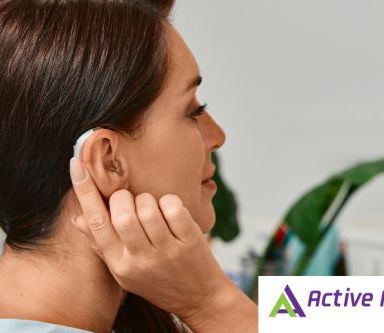
A good diet is necessary to be healthy. Many people don’t think they need to eat well to protect their hearing, but there is a unique link between hearing loss and nutrition. Your diet can directly impact your hearing health. Now, a healthy diet cannot reverse hearing loss, but a poor diet does increase your risk of hearing loss. People with diabetes need to be especially cautious because developing hearing loss is twice as common in those with type II diabetes. Learn how nutrients affect our hearing, which foods can help and what to avoid from your local ear specialist!
How nutrients affect our hearing
Any sort of malnutrition is going to affect you negatively. Research has shown that foods with folic acid, potassium and zinc can decrease the risk of developing hearing loss by 30%. Folic acid has the potential to slow the onset of hearing loss, as it regulates blood flow and the inner ear relies on regular blood flow to function. You can find folic acid in spinach, broccoli and asparagus.
Potassium contributes to how our inner ears function and it turns sound into things we understand. Regularly eating potassium can keep your hearing where it’s currently at. Potassium is commonly found in potatoes, black beans and bananas. Zinc has been found to help suppress tinnitus, as it acts as a barrier protecting the hair cells in the inner ear. Zinc exists in almonds, cashews and dark chocolate.
Feed your hearing important nutrients
Eating specific foods and avoiding others does not prevent or cause hearing loss, but certain eating patterns can decrease or increase your risk of developing hearing loss. It’s best to follow a diet that favors fruits, vegetables, seeds, nuts, legumes, whole grains, seafood, poultry and low-fat dairy. You also want a diet that consists of fewer foods high in sodium, cholesterol and less red meats, processed foods and sugary drinks. Below is what to consume more and less of.
Consume more
-
B-12 - It is found in meat, eggs, poultry, dairy products and other foods from animals, and it contributes to your overall balance.
-
Vitamin B9 - Also known as folic acid or folate, it can be found in spinach, broccoli, asparagus, bok choy, romaine, turnip greens, lentils and garbanzo beans.
-
Omega 3s - These exist in salmon and many other fish, walnuts, flax seeds and chia seeds. They can help offset the risk of women developing hearing loss when eaten regularly.
-
Magnesium - This is found in bananas, artichokes, potatoes, spinach, tomatoes and broccoli. Much like Zinc, it helps protect inner ear hair cells. When eaten with Vitamins A, C and E, magnesium can help prevent noise-induced hearing loss.
-
Zinc - It can be found in oysters, grass-fed beef, pumpkin seeds, sesame seeds and spinach, as well as almonds, cashews and dark chocolate. Zinc contributes to cell regrowth and healing, helps those with sudden sensorineural hearing loss, sometimes provides relief for those experiencing tinnitus and can fight against ear infections as it boosts the immune system.
-
Potassium - Potassium is found in spinach, lima beans, tomatoes, raisins, apricots, melons, oranges, yogurt and low-fat milk as well as potatoes, black beans and bananas.
Consume less
-
Vegetable oils - They have too many Omega 6 fatty acids. Instead, choose Canola oil, which is rich in Omega 3s.
-
Processed foods - These kinds of foods contain partially hydrogenated oils. It’s best to avoid those and margarine.
-
Meats - Meats in high fats have nitrates and nitrites, certain preservatives that aren’t necessarily good for us.
-
Whole and 2% milk - Opt for almond, rice or coconut milk.
-
Cream cheese - Choose goat cheese or a part-skim organic ricotta cheese.
-
American cheese - This kind of cheese is highly processed, try to find organic or grass-fed hard cheeses instead.
-
Sugar and artificial sweeteners - Try Stevia, honey or real maple syrup instead.
-
Refined carbohydrates - This means breads, pastas and foods that contain enriched flour. The nutrients have been removed from the grain.
-
Sodium - We do need a small amount of sodium, but too much sodium is found in packaged foods. Try to eat more potassium over sodium.
-
Chemicals and pesticides - These are often found on fruits and vegetables. Wash your produce before eating it, and buy organic when you can.
Visit an ear specialist
It’s necessary to visit an ear specialist when you first start noticing signs of hearing loss. Pay attention to foods that may negatively affect your hearing health, and start eating ones that help make you healthier. Contact us today with any questions, or to make an appointment for you or a loved one!






Comments